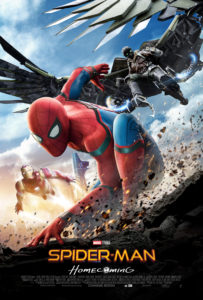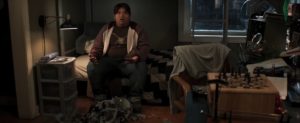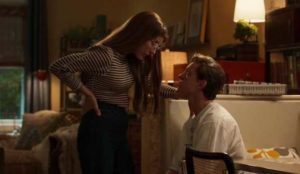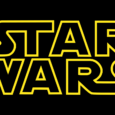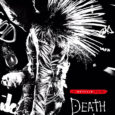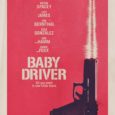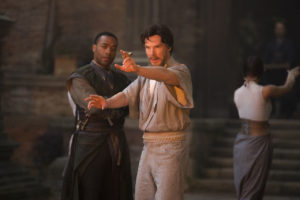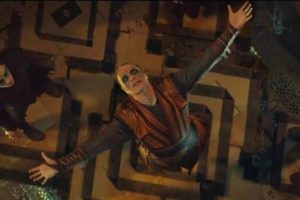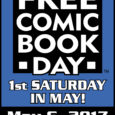Well before the wide release of Spider-Man: Homecoming, early preview reviews started rolling out and proclaiming the film to be fantastic. I was a little worried that much of the hype was overblown; that the reviewers were overlooking the movie’s flaws just because they were happy to have Spider-Man as part of the Marvel Cinematic Universe. Granted, I had no reason to feel this way having not seen the movie, but that’s just the anxiety in me. After seeing Spider-Man: Homecoming, however, I realize just how silly this notion was.
For starters, Homecoming doesn’t get bogged down in an origin story. One of movie-goers’ biggest complaints is that the first film in every super hero series is an origin. Most often, it’s necessary to establish where the character comes from. Sometimes, a movie is directed well enough that the audience doesn’t realize they’re watching an origin. For Spider-Man: Homecoming, there’s a quick scene recapping Peter Parker’s (Tom Holland) experiences in Berlin prior to his debut in Captain America: Civil War and how Tony Stark (do I even need to put “Robert Downey Jr.” here?) gave him his suit but that’s it. They make references to the spider that bit him but we never see it happen. Thankfully Marvel and Sony understood that audiences know how Peter became Spider-Man.
As a character, Spider-Man has always been about dichotomy, and Homecoming recognized that. Peter Parker is the timid, nerdy, powerless kid but he’s also the strong super hero who can do amazing things. In the movie, though, we see this power divide almost everywhere. Spider-Man wants t do more and help people on a grander scale but Tony Stark limits his abilities and keeps him grounded. Adrian Toomes, the villainous Vulture played by Michael Keaton, is a hard-working, blue-collar salvage worker whose life is threatened when a powerful government organization comes in and claims authority over his jobsite. We can understand his fear and need to do whatever he has to in order to provide for his family. (This was also a nice way to tie Homecoming into the MCU and the events that transpired in Avengers.)
Spider-Man: Homecoming also places a lot of focus on Spidey’s supporting characters. Peter’s best friend, Ned (played by Jacob Batalon, who looks more like Ganke than Ned Leeds but I digress), gets almost as much screen time as Peter himself. School bully Flash Thompson (Tony Revolori) shows up often and is much more than a one-note trick than previous portrayed in the other movies. Even a character like Michelle has an abundance of screen time, but that’s to be expected when they put someone like Zendaya in that role.
All of this works to make Spider-Man: Homecoming feel like a true Spider-Man movie. Spider-Man has always been about the people around him. Seventy plus years of comics show us that Spider-Man became the hero he is because of his affection for his friends, and even his tormentors. Previous cinematic versions of Spidey never really got that ideal, or at least never expressed it as well as Homecoming did.
One of my biggest complaints about Homecoming is the way it handled Peter Parker. As the quiet, nerdy kid, Peter either gets picked on or ignored. He lives with his elderly Aunt May, who no doubt maintains her household while living on a fixed income. Peter feels that financial crisis and decides to help carry the burden. However, in Homecoming, Peter isn’t like that. Sure, he gets picked on by Flash Thompson, but overall he has a few close friendships. His peers find value in his intelligence and every time they’re disappointed by him it’s through his own actions. Even Aunt May (Marisa Tomei) is younger and prettier than her other incarnations (which the movie doesn’t hesitate to joke about), which allows her to continue to provide for herself and her teenage nephew. Peter’s life in Homecoming isn’t that bad.
Being Spider-Man, however, sure as hell seems like it. Homecoming manages to show audiences just how much it sucks to be Spider-Man. He gets yelled at by the public for making mistakes. His actions cause massive damage to the neighborhood he lives in. He puts his life on the line to take down a threat when no one else will listen to him. Why?
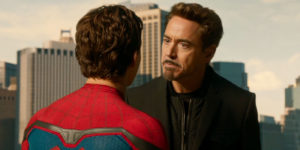 Clearly because “with great power comes great responsibility.” The beauty of Spider-Man: Homecoming is that we have a Spider-Man who understands Uncle Ben’s powerful message without having to beat audiences over the head with the phrase. Not once are those words uttered, but we see how much Peter values them. This all goes back to the lack of an origin story. Spider-Man knows when it’s time to do the right thing; whether it’s from the life lesson he learned off-screen from his Uncle Ben or from being mentored by Iron Man himself is irrelevant. It’s a notion that’s inherent in this version of Spider-Man.
Clearly because “with great power comes great responsibility.” The beauty of Spider-Man: Homecoming is that we have a Spider-Man who understands Uncle Ben’s powerful message without having to beat audiences over the head with the phrase. Not once are those words uttered, but we see how much Peter values them. This all goes back to the lack of an origin story. Spider-Man knows when it’s time to do the right thing; whether it’s from the life lesson he learned off-screen from his Uncle Ben or from being mentored by Iron Man himself is irrelevant. It’s a notion that’s inherent in this version of Spider-Man.
There’s lots of things to enjoy about Spider-Man: Homecoming; all of the excellent performances of the cast, most notably by Holland and Keaton, the return of Jon Favreau as Happy Hogan in a true supporting role, and all of the small throwbacks and references the filmmakers added. Overall, what I liked about Homecoming is that this is the closest a movie version of Spider-Man has ever gotten to its comic book roots. The young Peter Parker/Spider-Man has a lot to learn, not just about being a hero but about life in general. They’re not fast forwarding through his growth but allowing audiences to experience it first-hand, which is the most exciting part of the story.
Grade: A
The first trailer guarantees that Doctor Strange will be visually and cinematically unlike any other Marvel movie. You sense that Marvel Studios‘ latest will give basically Inception on steroids. While Strange‘s unique architecture was never in doubt, “will it have the typical Marvel charm?” was the question on everyone’s lips. Fortunately, likely thanks to renowned comedy writer Dan Harmon‘s rewrites, the most recent Marvel Cinematic Universe entry delivers in almost every regard.
We’ll definitely arrive at why I said “almost,” but first, many movie-only fans likely need some background. Doctor Strange follows the appropriately-named Dr. Steven Strange, a very stubborn, hot-shot neurosurgeon. He’s not a very likable or charming individual; traits that leading man Benedict Cumberbatch has fun with on-screen. However, as with most every origin story, his fortunes don’t last after a devastating car accident badly damages his skilled hands.
Desperate to reattain his status for his damaged ego’s sake, he treks out to a temple in Nepal to learn the mystical arts. As expected, the pompous Strange laughs off the very idea of “magic,” but the Ancient One quickly resolves his skepticism, otherwise, there wouldn’t be much of a movie. As Strange hones his otherworldly skills, he discovers the massive responsibility his newfound friends carry on their shoulders. This leads Strange to an intriguing moral dilemma of choosing to fight for others or only himself.
As with all reviews, I aim to remain spoiler-free. Unfortunately, many things I adore from Doctor Strange involve spoilers, but I’ll tread carefully. Firstly, director Scott Derrickson and the writers utilize the cast to perfection. Cumberbatch carries the film effortlessly, but you also have supporting players turning in memorable performances. Understandable controversies aside, Tilda Swinton brings an elegance, mystique, and toughness as the Ancient One. Chiwetel Ejiofor surprises as Karl Mordo with a few impassioned speeches. Benedict Wong shines as the hilariously stone-faced (and coincidentally-named) Wong. Although not exploited to her full potential, Rachel McAdams as Christine Palmer is a fantastic addition as well.
To accompany the acting gravitas, Derrickson constructs the most impressive, innovative visuals from any Marvel title on any medium. The thrilling opening sequence whets the appetite, and the movie efficiently builds upon that. We’re shown a psychedelic sequence that could be this generation’s 2001: A Space Odyssey stargate scene. As seen in the trailers, there’s also a mind-bending foot chase where buildings and roads are upside down or sideways or inside each other. With the mystical rules having been thoroughly explained throughout the film, these set pieces are immensely gratifying.
As for these aforementioned “rules” of Doctor Strange‘s universe, I truly appreciated how fresh Marvel’s introduction to magic felt. You’ll see lived-in dimensions, ancient artifacts with a rich history, and an expansive library. There may be times where the audience will want to ask the movie to “slow down.” The filmmaker throws a potential overload of information at you. However, hearing the Ancient One’s musings such as “not everything makes sense; not everything has to,” the film successfully reminds you to turn off your brain, forget about the science behind the magic, and enjoy the ride.
Now I disclose why I earlier claimed Doctor Strange to “almost” deliver in every regard. Unfortunately, the Marvel villain conundrum continues. Mads Mikkelsen plays Kaecilius, and turns in a portrayal that’s nothing or less than “fine.” The most frustrating part is his lack of clear motivations. He monologues to Strange about his devious intentions (which don’t really seem that devious), but the “why” is entirely avoided. There are effective efforts to tease future villains that do have more depth, but it’s at the sacrifice of the current villain’s arc.
Also, I’ve spotted a few articles mentioning how Marvel movies not named The Avengers have forgettable musical scores. After hearing the Michael Giacchino presided over the musical arrangement, I was ready to lay those sentiments to rest. I gained confidence after listening to the end credits music released a few weeks ago. Yet throughout the film, I didn’t even notice the music as anything more than ambient noise. Yes, you don’t want the melodies to distract from the motion picture, but the musician in me clamored for something of literal and figurative note.
Luckily, none of these criticisms ruined how tremendous Doctor Strange was as a whole. I’ll never forget feeling that ultimate high after leaving the theater, having seen Marvel’s most inventive, creative entry yet. There are enough Easter eggs and name-drops peppered throughout to justify revisiting the movie often. As a bonus, this movie’s mid and end credits scenes possess heavy implications to Marvel’s future titles too. Most importantly, Strange has the familiar well-timed humor and joyous fun you’re looking for. The Doctor is in.
Grade: B+


